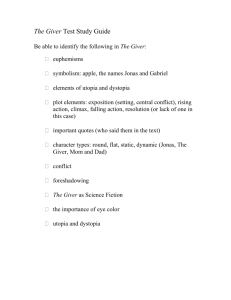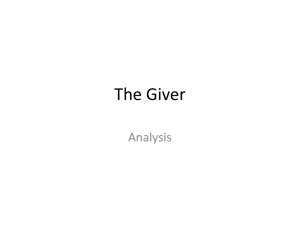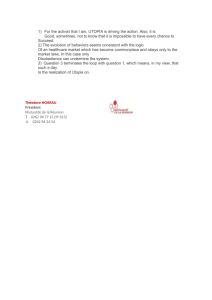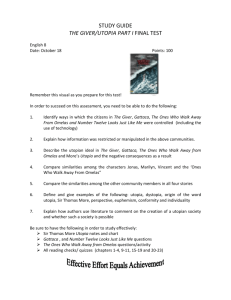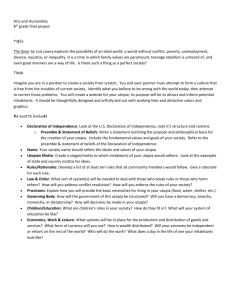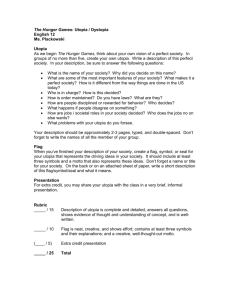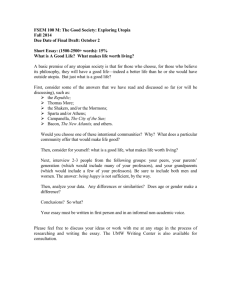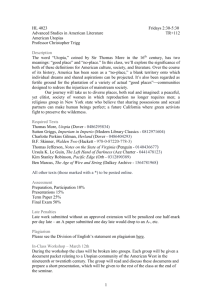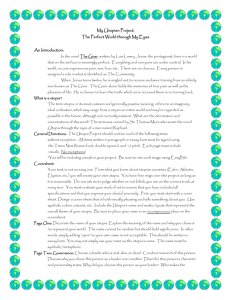Middle School Summer Reading Assignments 6th Grade: Battle of
advertisement
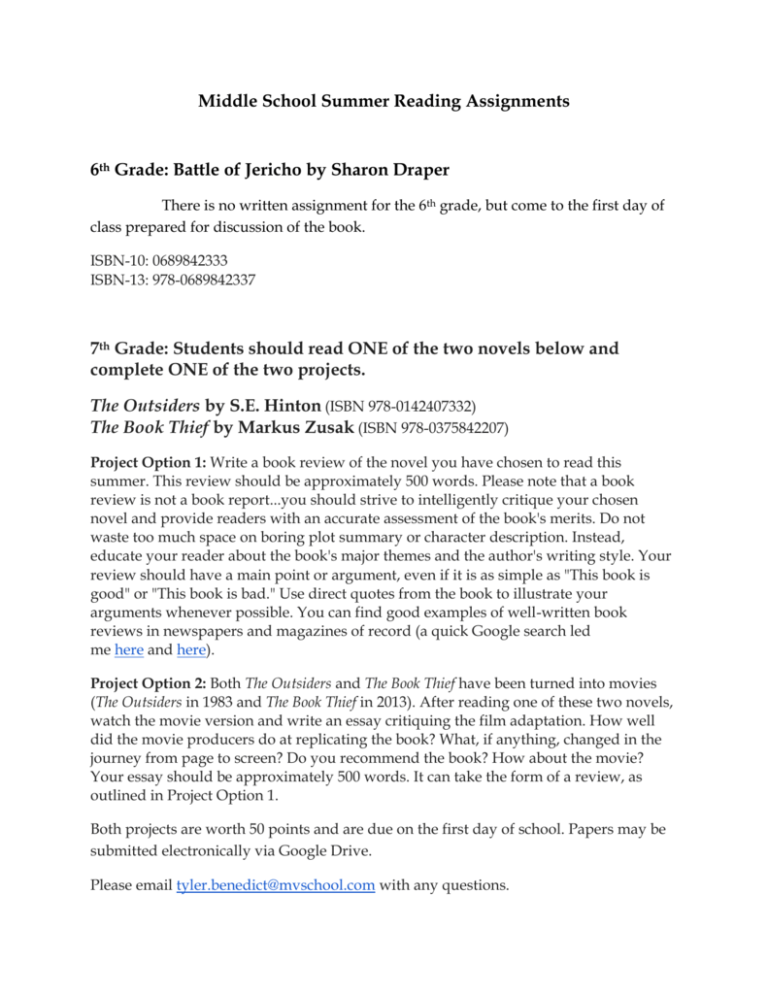
Middle School Summer Reading Assignments 6th Grade: Battle of Jericho by Sharon Draper There is no written assignment for the 6th grade, but come to the first day of class prepared for discussion of the book. ISBN-10: 0689842333 ISBN-13: 978-0689842337 7th Grade: Students should read ONE of the two novels below and complete ONE of the two projects. The Outsiders by S.E. Hinton (ISBN 978-0142407332) The Book Thief by Markus Zusak (ISBN 978-0375842207) Project Option 1: Write a book review of the novel you have chosen to read this summer. This review should be approximately 500 words. Please note that a book review is not a book report...you should strive to intelligently critique your chosen novel and provide readers with an accurate assessment of the book's merits. Do not waste too much space on boring plot summary or character description. Instead, educate your reader about the book's major themes and the author's writing style. Your review should have a main point or argument, even if it is as simple as "This book is good" or "This book is bad." Use direct quotes from the book to illustrate your arguments whenever possible. You can find good examples of well-written book reviews in newspapers and magazines of record (a quick Google search led me here and here). Project Option 2: Both The Outsiders and The Book Thief have been turned into movies (The Outsiders in 1983 and The Book Thief in 2013). After reading one of these two novels, watch the movie version and write an essay critiquing the film adaptation. How well did the movie producers do at replicating the book? What, if anything, changed in the journey from page to screen? Do you recommend the book? How about the movie? Your essay should be approximately 500 words. It can take the form of a review, as outlined in Project Option 1. Both projects are worth 50 points and are due on the first day of school. Papers may be submitted electronically via Google Drive. Please email tyler.benedict@mvschool.com with any questions. 8th Grade: The Giver, Lois Lowry (ISBN 978-0440237686) Summer Project: Build a Utopia In The Giver, Jonas lives in a seemingly perfect community. Ideal societies such as these are called utopias, a term coined by English author Sir Thomas More. The word utopia has a double meaning: More was thinking of the Greek eu + topia, meaning "good place," but also ou + topia, meaning "no place." Over the course of the book, Jonas begins to discover that his community is not as perfect as it seems, and that it may in fact be a dystopia (from the Greek for "bad place"). Obviously, no perfect societies exist on Earth today, but for this summer reading project you will get to design your own utopia. Write a blueprint for an ideal society, as you envision it. This can take several forms: you can structure your paper as an encyclopedia entry, a creative writing piece, a persuasive proposal…whatever you like. You may include supplemental materials such as illustrations, video footage, etc., but these should serve to enhance your written blueprint, not supplant it. Topics you can cover include the economics of your society (how does business get done? What are the methods of trade? Is property held in common?), interpersonal relationships (what does romance look like in your society? How are children raised? What about care for the elderly and sick?), and general ethics/justice (how is the justice system structured? What role, if any, does religion play? How does the society approach war and provide for its defense? What about education?). You should also make sure to cover how the government is structured (is there a supreme leader, a council, a republic?). I suggest that you begin by thinking what aspects of our current society need reforming, then coming up with your best solutions. Your utopia does NOT need to be possible in the real world, so don’t fret too much wondering about “how to make it realistic.” Possible sources of inspiration: The Giver (of course), Plato’s Republic, Thomas More’s Utopia, Jonathan Swift’s Gulliver’s Travels, the Diggers of 16th-century England, American utopian communities of the 19th century (Shakers, Oneida, Brook Farm, Fruitlands), Israeli kibbutzim, Indian ashrams. You may also want to look at spiritual and philosophical texts from around the world to see what they have to say about living a good life. This project is due on the first day of school. It is worth 75 points. Email tyler.benedict@mvschool.comwith any questions.

